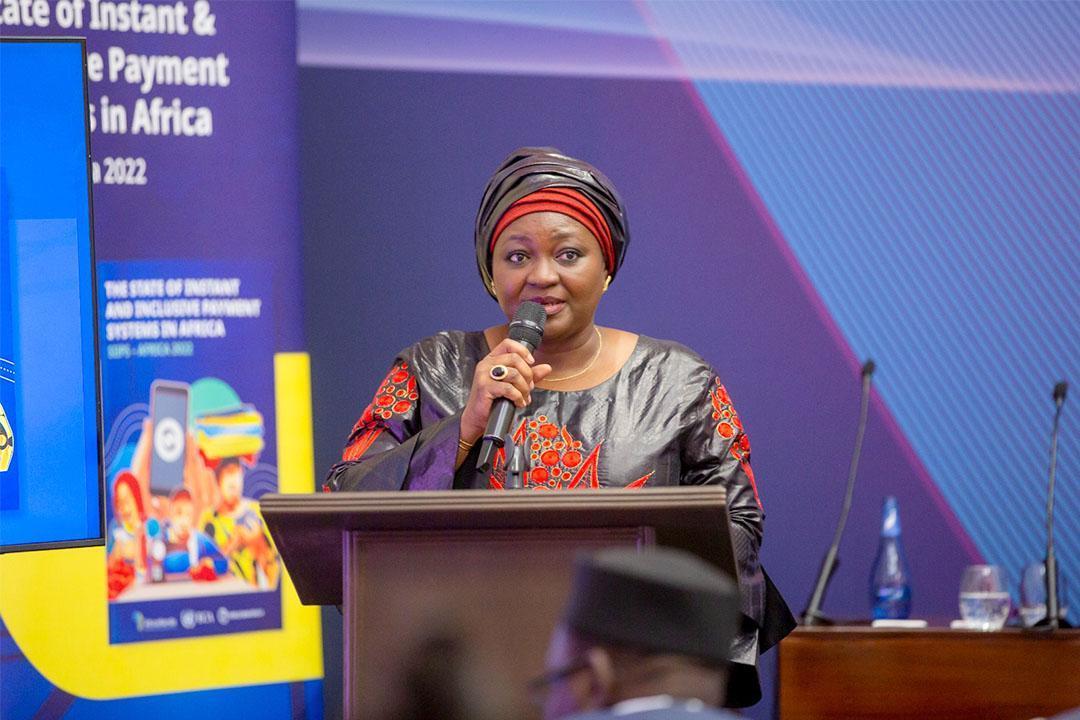Africa-Press – Eswatini. Africa is entering a new era of financial integration, with instant cross-border payment systems poised to transform trade, economic inclusion, and business growth across the continent, according to experts.
Speaking on behalf of the AfricaNenda Foundation, Deputy CEO Sabine F. Mensah said the recent launch of the Instant Payment System (PI-SPI) by the Central Bank of West African States (BCEAO) marked more than just a technological achievement. She explained that the system allows transactions to cross borders in seconds, connecting communities and businesses that had previously been held back by the high cost and slowness of money transfers.
Mensah noted that historically, sending money across borders in Africa has been expensive and cumbersome. She cited World Bank data showing that sending $200 to Africa costs an average of 7.9%, more than double the 3% target set by the Sustainable Development Goals. She said these high fees disproportionately affect small and medium-sized enterprises (MSMEs), which account for over 90% of jobs on the continent, limiting trade and slowing progress toward the African Continental Free Trade Area (AfCFTA).
However, Mensah said a “quiet revolution” is underway. She highlighted the role of other initiatives, including the Pan-African Payment and Settlement System (PAPSS), Southern Africa’s Transactions Cleared on an Immediate Basis (TCIB), and GIMACPAY in Central Africa. According to AfricaNenda’s State of Inclusive Instant Payment Systems (SIIPS) 2024 Report, 31 instant payment systems are already active across Africa, three of which allow real-time cross-border payments, demonstrating that momentum is building.
She emphasised that faster, cheaper, and more inclusive cross-border payments would have a transformative impact, enhancing financial inclusion, MSME competitiveness, and economic growth. “It is not merely about technology,” Mensah said. “It is about unlocking prosperity for all. The AfCFTA offers a once-in-a-generation opportunity to fuel intra-African trade, and for trade to happen, payments must be instant, affordable, and accessible to everyone.”
Mensah highlighted Africa’s leadership in mobile money, noting that 40% of African adults now own mobile money accounts. She added that while banks, fintechs, and remittance companies are offering cross-border solutions, challenges remain. Delays in settlement, high fees, and inconsistent regulatory frameworks continue to hinder expansion. She called for unified approaches, including fintech licence passporting, harmonised e-KYC and AML/CFT standards, and a Pan-African Payment Services Directive, inspired by Europe’s PSD2 and PSD3, to create a seamless financial ecosystem.
The AfricaNenda Foundation supports governments and financial institutions by providing technical assistance, capacity building, and data-driven insights to scale inclusive instant payment systems. Mensah explained that these systems empower women, enable rural communities to participate in markets, and allow MSMEs to grow, ultimately building a dynamic, resilient, and self-sustaining African economy.
Looking ahead, Mensah said the foundation envisions that by 2030, over 260 million more Africans will have access to affordable instant payment systems. She cited encouraging progress in West Africa, Central Africa, Southern Africa, and East Africa, where systems are being piloted and interconnected. She called on stakeholders to use the forthcoming SIIPS 2025 Report to accelerate Africa’s journey toward a truly inclusive digital economy.
Mensah concluded that the BCEAO’s PI-SPI is not the end of Africa’s story of innovation, but rather the beginning of a new chapter: one where the continent takes greater control of its economic flows, trade, and destiny.
For More News And Analysis About Eswatini Follow Africa-Press







